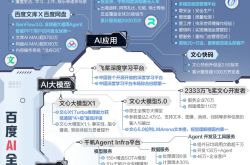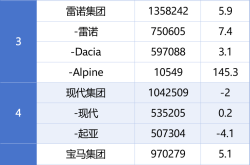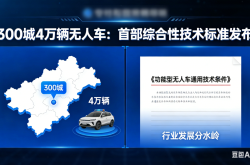BMW, struggling with sales, aims to turn things around with 'hydrogen cars'!
![]() 09/30 2024
09/30 2024
![]() 612
612
After withdrawing from the price war, BMW seems to be facing difficulties. Recently, BMW issued an announcement adjusting its financial guidance for fiscal year 2024, expecting a slight year-on-year decrease in deliveries.
BMW stated that production halts due to technical issues, combined with continued sluggish demand in key markets such as China, have impacted sales: deliveries are expected to decline year-on-year instead of increasing; the EBIT margin for 2024 will range from 6% to 7%, down from the previously estimated 8% to 10%.
After the announcement, not only did BMW's share price plummet, but it also dragged down the share prices of numerous European automakers. In fact, since last year, it's not just domestic automakers that have participated in the automotive price war; overseas luxury brands like Mercedes-Benz and BMW have also been dragged into it. After all, as an important market for overseas automotive brands, China cannot be easily compromised.
However, some automakers who couldn't withstand the pressure chose to withdraw first. BMW has been trying to maintain sales through price cuts since last year, announcing its withdrawal from the 'price war' in July. BMW China stated that in the second half of the year, it will focus on business quality in the Chinese market and support dealers in a steady manner.
However, after withdrawing from the price war, BMW's sales have become even more sluggish. To address this, BMW recently announced a partnership with Toyota in the field of hydrogen fuel cells, aiming to develop hydrogen fuel cell vehicles. Following the principle of 'if you can't beat them, join them,' will BMW's 'new strategy' succeed?
1. The 'anti-price-cut alliance' is breached
Since BMW adjusted its financial guidance for fiscal year 2024, concerns about BMW's development situation have become increasingly apparent, especially since BMW's sales have accelerated their decline since it clearly withdrew from the Chinese market's price war.
In August, BMW China sold a total of 34,800 vehicles, nearly halving compared to the 60,000 sold in the same period last year. For reference, Mercedes-Benz sold 49,000 vehicles, and Audi sold 47,900 vehicles, with year-on-year declines of 13.83% and 16.0%, respectively. In other words, among the traditional BBA giants, while sales have declined for all, BMW has suffered the most significant drop.
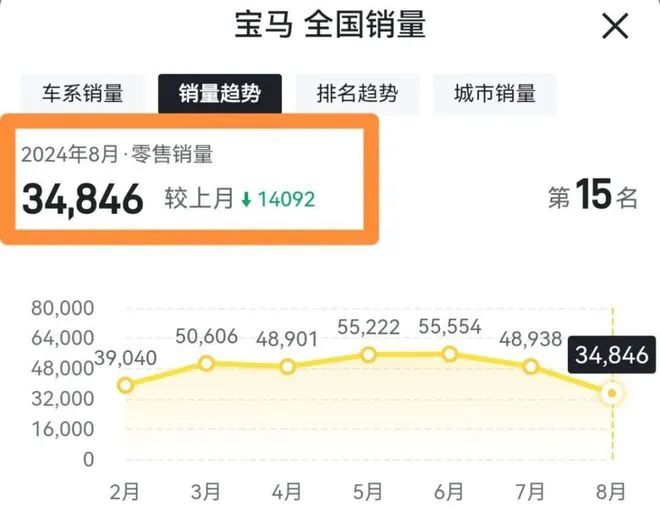
After announcing its withdrawal from the price war in July, Liudao Hu, CEO of BMW Brilliance, stated that pricing is complex, but a key factor is that companies cannot sustain long-term losses; otherwise, they cannot survive, and the after-sales service provided to products will become unsustainable.
Since then, while Mercedes-Benz and Audi have not officially responded to the price war, both have begun gradually raising prices for their models in practical terms. However, despite the general trend of 'price hikes,' the magnitude varies.
Price increases by Mercedes-Benz and Audi are primarily targeted at their best-selling models, such as slight adjustments to the prices of Audi's A6L and A4L. However, discounts on lower-end models remain similar to previous levels, with Mercedes-Benz GLB and Mercedes-Benz C-Class continuing to offer discounts of around 100,000 yuan.
Moreover, since the magnitude of previous price cuts varied among BBA brands, so do the subsequent price hikes. For example, the highly debated BMW 5 Series and 7 Series previously offered discounts of over 200,000 yuan at their peak. After BMW announced price hikes, its models have seen multiple increases ranging from 30,000 to 80,000 yuan. In comparison, most BMW and Mercedes-Benz models have seen price hikes of around 10,000 to 20,000 yuan.
Therefore, even though the 'BBA anti-price-cut alliance' appears to be slowing down the price war on the surface, BMW has actually seen the largest magnitude of price hikes, directly resulting in a further widening of the sales gap between BMW and its competitors Mercedes-Benz and Audi.
Data shows that during the four-week period from July 1 to July 28, 2024, Mercedes-Benz has surpassed BMW to take the 'number one' position in China's luxury automotive market for vehicles priced above 200,000 yuan. Auto industry analyst Sun Shaojun posted that Mercedes-Benz has received nearly 20,000 new orders in a single month, making it the biggest winner from BMW's price hikes, far exceeding its usual performance.
2. The luxury car landscape is changing dramatically
In the Chinese market, BMW finds itself in an awkward position: it wants to compete but can't win, and it doesn't want to compete but is backstabbed by its peers. Various signs indicate that the Chinese luxury car market landscape is undergoing changes.
If possible, luxury car brands actually prefer not to rely on 'price cuts' to boost sales. In May this year, three Porsche China dealers jointly sent a letter to Porsche headquarters requesting compensation or subsidies for recent new car sales losses.
Behind this is the continued decline in sales of overseas luxury brands in China. Even super-luxury brand Porsche has seen its dealers realize that without price cuts, it is difficult to meet sales targets. However, if the price war becomes too intense, profit margins are compressed, and no one wants to do unprofitable business.
This is true even for super-luxury brands, let alone BBA. Therefore, luxury car brands that once vowed not to participate in price wars have reluctantly resorted to price cuts. For example, in the first quarter of last year, Oliver Zipse, Chairman of the Board of Management of BMW AG, stated, 'BMW's brand position helps us avoid the increasing pressure to lower prices in the Chinese market.'
Even so, BBA is still losing market share in China. In the first half of this year, Mercedes-Benz, BMW, and Audi sold 350,705, 363,998, and 329,556 vehicles, respectively, down 10%, 5%, and 3% year-on-year.
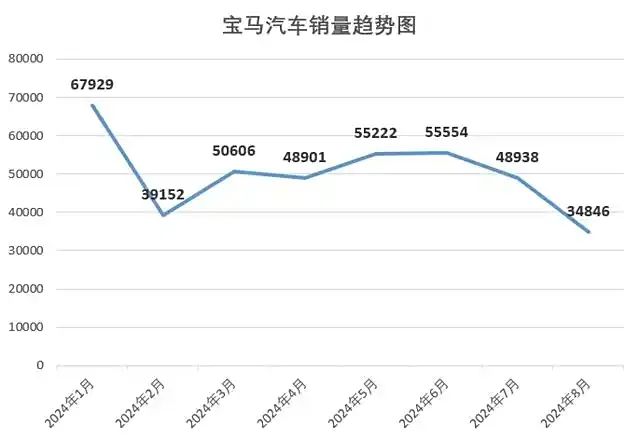
According to Gangtise Investment Research data, in 2022, overseas luxury brands such as Porsche, Mercedes-Benz, BMW, and Audi held a market share of up to 94%, while Chinese automakers had only a single-digit share.
However, in recent years, luxury car sales in the Chinese market have generally shown an upward trend. In 2022, luxury car sales in China were approximately 820,000 units, with sales growing by 22% year-on-year to 1 million units in 2023. As of May this year, Chinese automakers' share in the luxury car market has increased to 21%, and it is expected to continue growing in the future.
The rise of Chinese automakers in the luxury car market is primarily due to the continued growth of domestic high-end brands such as Wenjie and Aoyang, as well as the sustained volume increases of new force brands like Lixiang and NIO.
In the past two years, Chinese automakers have continued to develop towards the high end, not only achieving breakthroughs in new energy technologies such as batteries, motors, and electronic control systems, but also significantly improving their brand image promotion, after-sales service establishment, and channel marketing.
For example, in the era of fuel vehicles, domestic automakers primarily adopted the 4S store channel model. However, with the introduction of the direct sales model by new force brands, more and more automakers have begun to focus on the location and operation of their direct stores.
While costly, the effects are immediate. New energy vehicle direct stores located in core commercial districts can more directly reach core consumer groups and provide upgraded services through in-house teams, such as NIO's NIO House and Zeekr's Zeekr Space.
The simultaneous improvement of Chinese automakers' soft and hard power is the foundation for China's automotive industry to continue its high-end development. However, in the context of a 'rise and fall' market landscape, overseas luxury brands must also find ways to respond.
3. Can BMW turn things around with hydrogen cars?
Recently, BMW announced a partnership with Toyota to jointly develop and mass-produce their first model equipped with a hydrogen fuel cell system in 2028.
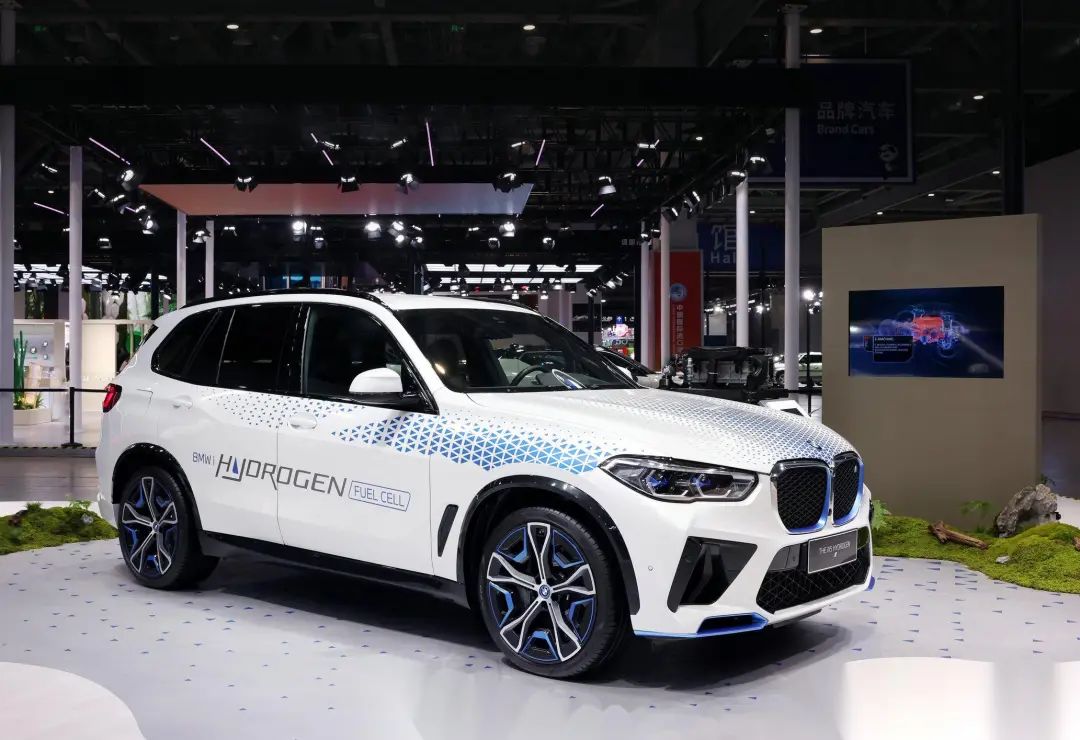
According to Michael Rath, Vice President of BMW Hydrogen Fuel Cell Vehicles, the hydrogen tank for this model is independently developed by BMW. BMW and Toyota will collaborate to promote the upgrading of next-generation related technologies, but each will develop their own models, with no plans for joint development of hydrogen fuel cell vehicles.
Currently, in addition to BMW, many overseas brands have made layouts in the field of 'hydrogen cars.' For example, Toyota launched its first mass-produced hydrogen fuel cell vehicle, the 'Mirai,' in 2014; Honda introduced its hydrogen fuel cell vehicle, the Clarity, in 2015; and Ford released its hydrogen fuel cell vehicle, the 'Fusion,' as early as around 2008.
However, market demand for hydrogen cars is not particularly strong. While Toyota, Ford, and other brands have sold hydrogen cars in Japan and the United States, they have not been able to penetrate the market on a large scale.
Hiroki Nakajima, Chief Technology Officer of Toyota, acknowledged that the commercial performance of its Mirai has not been successful, and building hydrogen refueling infrastructure also faces many challenges. Nevertheless, judging from the BMW-Toyota partnership, automakers do not intend to abandon hydrogen technology.
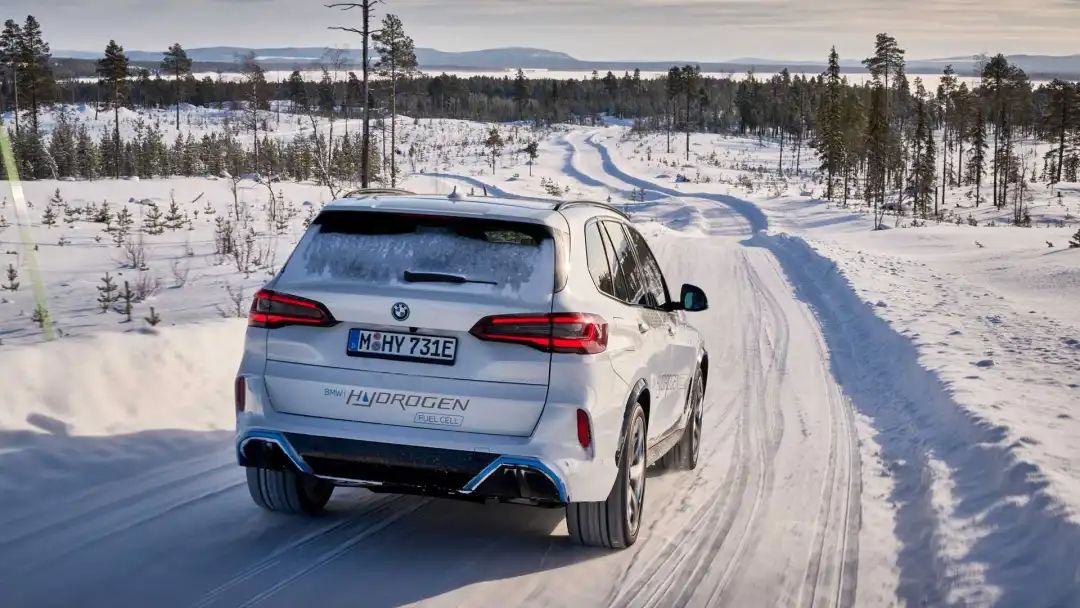
In addition to overseas automakers, many domestic automakers are also developing hydrogen fuel cell vehicles. However, there are not many hydrogen fuel cell vehicles currently available on the market. Relevant models include the Chang'an Deep Blue SL03 with a hydrogen-electric version; the Aion LX Fuel Cell, which uses hydrogen fuel; and the BAIC EU7 FC midsize car, which has long been rumored to have a hydrogen-electric version but has yet to be launched.
On the domestic battery side, in June this year, Contemporary Amperex Technology Co., Limited (CATL) signed a cooperation agreement with RE-Power Solutions to further increase its investment in hydrogen fuel cell research and development. Additionally, BYD began its layout in hydrogen energy as early as 2007 and has since obtained seven fuel cell patents and one electrolysis cell patent.
In the past, hydrogen fuel cell vehicles were primarily developed by automakers from the United States, Japan, and South Korea. While Chinese automakers and battery factories have also made layouts, hydrogen fuel cell vehicles have yet to reach a mature stage of development.
Firstly, hydrogen fuel cell technology is not yet mature, with safety, lifespan, and performance issues that make it difficult to meet the full-power fuel cell operation requirements of passenger vehicles. Secondly, the production cost of hydrogen fuel cell vehicles is relatively high, lacking market competitiveness. Lastly, there are currently few hydrogen refueling stations; it is reported that building a hydrogen refueling station costs over 10 million yuan, far exceeding the cost of building battery swap stations and charging piles, which hinders the popularization of hydrogen fuel cell vehicles.
Recently, Cui Dongshu, Secretary-General of the China Passenger Car Association, even publicly stated that hydrogen fuel cell vehicles are an outdated technology, as there has been no significant progress in hydrogen fuel cell technology in China or globally over the past 30 years.
Nonetheless, hydrogen fuel cell vehicles still have the opportunity to achieve important technological breakthroughs in the future. Therefore, global automakers and battery factories have not given up on their layouts in this area. Currently, domestic policies also provide certain preferences for hydrogen fuel cell vehicles, with multiple provinces announcing exemptions from highway tolls for hydrogen-powered vehicles.
Thus, it is not impossible for BMW to stage a comeback in the new energy sector with 'hydrogen cars.' Regardless of the development trend of hydrogen fuel cell vehicles, domestic automakers have already prepared for this. Even if hydrogen fuel cell vehicles become another viable automotive energy mode on par with electricity in the future, domestic automakers will not be left behind.
Therefore, even if domestic automakers must face off against overseas automakers head-on, both sides still have a fighting chance in the field of hydrogen fuel cells. Moreover, it remains uncertain whether the 'hydrogen fuel cell vehicle' battle will even materialize. In the era of new energy vehicles, Chinese brands will not easily give in.






